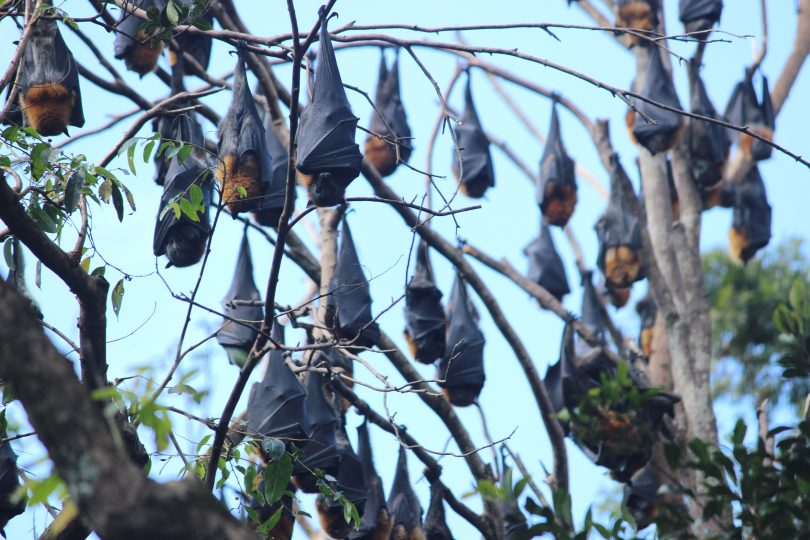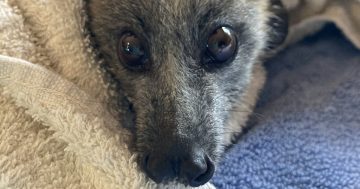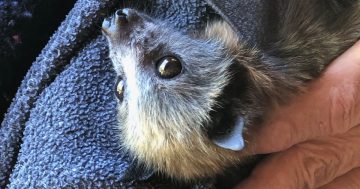
Every summer, flying foxes make their way to Commonwealth Park for a ‘summer maternity camp’. Photo: Supplied.
Regular as clockwork, every spring sees grey-headed flying foxes make their way to Commonwealth Park in Canberra to prepare for the summer birthing season, and ACT Wildlife is now calling on the public to keep an eye out for vulnerable species.
ACT Wildlife volunteer Katrina Roper says the flying foxes have been arriving since 2003, and numbers have been steadily increasing from around 3000 a few years ago to nearly 10,000 last summer.
She says the flying foxes like the area next to Lake Burley Griffin because they prefer to be close to a permanent freshwater source that lets them fly over and have a drink.
As numbers in the park colony grow, Canberrans are being asked to keep an eye out for the bats as they might start setting up camp in other locations.
Sightings of bats forming camps beyond Commonwealth Park can be reported via the Canberra Nature Map, either through the website or via the NatureMapr smartphone app.
Flying fox numbers are declining due to habitat clearing and a number of other factors. They can also be put in danger by incorrect tree netting, barbed wire, electrocution from powerlines and dog attacks.
Katrina says generally the bats arrive in late spring before the pregnant female bats give birth to a single pup after a six-month pregnancy.
“The mothers carry the baby bats for the first month after birth when they forage for food at night,” she says.
“After that, as the babies become too heavy for the mother bats to carry, they leave the pups in a bat creche in the maternity camp while they go and find flowers and pollen.”
Each mother can identify her own baby by its unique call, and they will begin feeding independently when they are able to fly at five to six months of age.
Grey-headed flying foxes are listed as a vulnerable species in Australia, and are on the International Union for Conservation of Nature Red List of Threatened Species.
It’s currently estimated there are only half a million of these animals left in Australia – the only country they’re found in – which is down from several million just a couple of decades ago.
The Black Summer bushfires of 2019-2020 saw mass destruction of native forests, which are the flying foxes’ habitat. Other heat stress events have also led to mass deaths.
Katrina explains flying foxes are very important creatures that play a vital ecological role by dispersing pollen and seeds from a wide variety of native Australian plants, so it’s critical that their numbers remain strong.
Baturday featured Joelene the flying fox last week. Here's her successful release at the Commonwealth Park colony — carer Denise said all went well. Joelene had healed from wounds after being stuck on a barbed wire fence. Don't touch bats yourself — our carers are trained and vaccinated.
Posted by ACT Wildlife on Sunday, October 3, 2021
Any bat hanging alone by itself during the day should be reported to ACT Wildlife as they should always return to the main camp.
ACT Wildlife volunteers can be reached 24-hours-a-day on 0432 300 033 for the rescue of any native animals, including flying foxes.
Members of the public are asked not to attempt a bat rescue themselves as there is a very small chance the bat could be infected with lyssavirus. Instead, a vaccinated volunteer will be able to assist.
If bats have been orphaned, they are reared by licensed and vaccinated carers during a six-month period before being released, while injured adult bats are rehabilitated and released back to the colony when possible.
ACT Wildlife carers already have a few flying foxes in their care.













